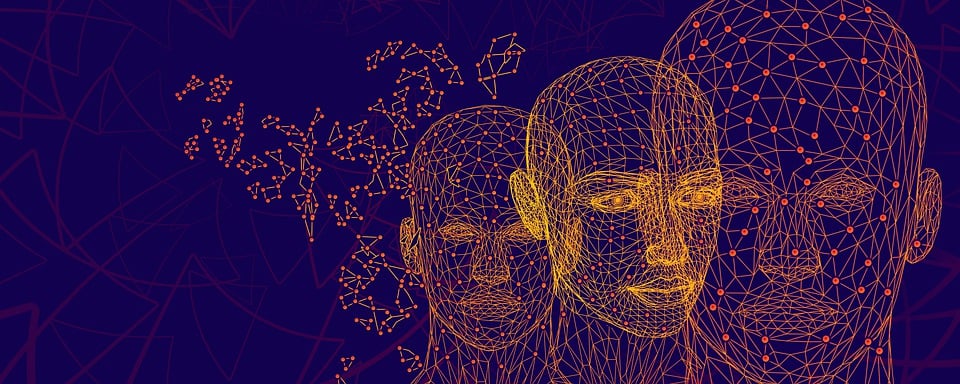
One of the central insights of Buddhist psychology is that our preferences shape our perception. Other factors, like mood and energy levels play an important part as well. Realizing this, we can see that shaping our minds can literally shape the world as we experience it.
This goes against the common-sense idea that what we perceive is simply what’s around us. After all, whether I get great rest or have horrible sleep, I still perceive myself waking up in my house, having my coffee, seeing my family, and going to work at my job.
Much of what we perceive will remain basically the same. But some things definitely do change. And other things take on a new flavor.
The Buddhist Cosmos
According to Buddhist theory, how we feel can make a profound impact on what we experience in life. So much so, that reincarnation (or rebirth) is generally explained in terms of the mind-states a person or being had in previous lives. If you are greedy in this life, you will be reborn as a “hungry ghost,” a being that is always hungry and thirsty. If you are angry in this life, you will be reborn in a Buddhist hell, where you are tormented by manifestations of your past anger. And if you are dull-witted in this life, you’ll be reborn as an animal.
Conversely, if you cultivate virtues such as strength, you can be reborn as a titan. Cultivating fine tastes and reducing aversion and attachment can lead you to rebirth as a deva or god-like being.
However, all of these are impermanent. Act kindly in that hell-realm and you can be reborn as a human soon enough or even a deva. Get greedy as a deva and you tumble back to the human realm or all the way to the realm of hungry ghosts.
What does all of this have to do with psychology? In ancient Buddhist times, psychology and cosmology weren’t distinguished. The belief was that anger in this life literally began building the hell of your future life. Similarly, birth and death were not thought of as grand and finite events. They were just continuations. Some Buddhist philosophers even said that rebirth is something that happens in every moment.
So a person could imagine that the anger of this life wasn’t just creating a hell in a future rebirth, but was actually creating a hell in this very life. If we think about it this way, it becomes clear that we should work on eliminating our anger, greed, and mindfulness or clear-mindedness right now.
Explaining our Ups and Downs

Similarly, this way of seeing psychology and our greater world of experiences can help us explain many of our ups and downs. When we are angry, everyone around us can feel like a threat. A sunny day just feels harsh. The things that once brought us joy become bland and lifeless. This can spiral into a constant view of oneself and the world as unfriendly, unwelcoming places.
Conversely, when we are joyful, the littlest things can bring us even more joy. Messy corners of our house can be seen as opportunities to clean and reorganize. The sun outside seems warm and inviting, brimming with possibilities.
Mindfully Seeing the Rises and Falls

The goal of mindfulness practice is to see things as they are. Having heard about the titans and devas above, some people assume that these are great states to attain. However, the Buddhist teaching is actually that these are not the ideal
The ideal state is that of the human. That’s because the titans, with their abundance of strength, tend toward jealousy and fighting. The devas, living enveloped in bliss, tend to be blind to the impermanent nature of their state. Both wind up falling from grace at some point due to their shortcomings.
The human state is ideal because it affords us the perfect balance of difficulties in life and opportunities to cultivate our minds. We don’t get lost in blissful states like the devas, or overestimate our strength and power like devas. Well, sometimes we do.
But for the most part, we live in a relative balance, moving between bliss and pain, anger and joy, and so on. And in this rise and fall, we can develop mindfulness about the causes of these states. We can look into the origins of our pain. Sometimes the origins of our anger or greed are not easy to locate. Quite often, there are remnants of childhood experiences seeping into our lives that need to be seen and acknowledged.
In the short-term, however, we can interrogate our perceptions when we are unhappy, angry, or deeply desiring something that is out of reach. Do we benefit from these feelings? Are there ways we can move around them to a more balanced state in our lives?
In this way, we might not make immediate changes to our feelings and perceptions. But we can see that there are causes behind them and actions we can take toward long-term change. Step by step we can question our negative states, allowing them to break down and be replaced by neutral and positive states.
Then we simply ride the ups and downs as they come. Our general state is one of openness and equanimity even though joy and sorrow still visit us. But, like other visitors, we know they are not “us” and they are not here to stay. They are simply more states of mind flowing through the sky-like expanse of our mental world.
 Justin Whitaker, Ph.D., holds a doctorate in Buddhist ethics from the University of London. He has given lectures, and taught Buddhist studies and Philosophy at Oxford University, the University of Hong Kong, the University of Montana, and at Antioch University’s intensive study-abroad program in India. A certified meditation teacher, he is a regular contributor to Patheos.com, and Senior Correspondent for Buddhistdoor Global. He lives in Missoula with his family.
Justin Whitaker, Ph.D., holds a doctorate in Buddhist ethics from the University of London. He has given lectures, and taught Buddhist studies and Philosophy at Oxford University, the University of Hong Kong, the University of Montana, and at Antioch University’s intensive study-abroad program in India. A certified meditation teacher, he is a regular contributor to Patheos.com, and Senior Correspondent for Buddhistdoor Global. He lives in Missoula with his family.
